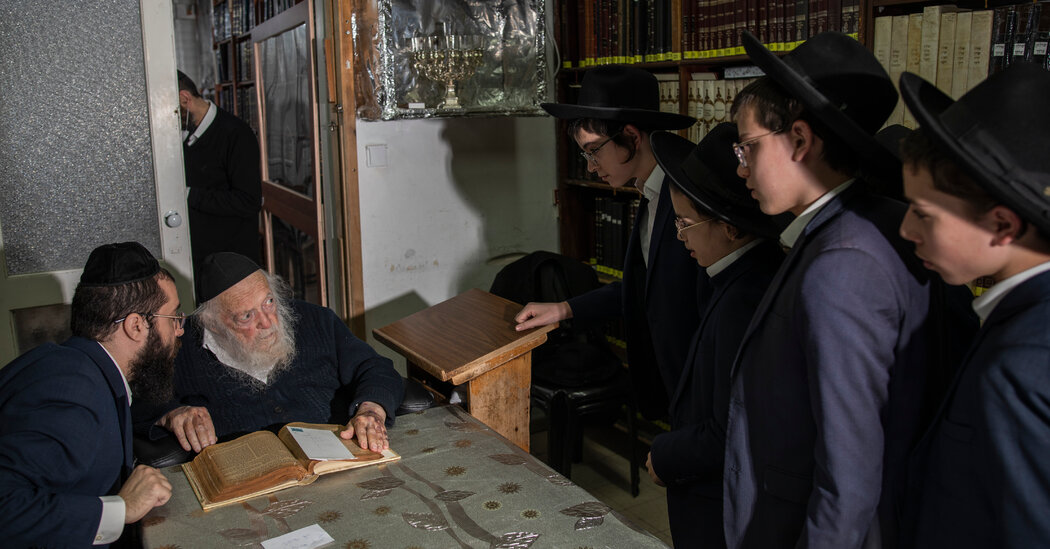Rabbi Chaim Kanievsky, 93, can’t use a phone. He rarely leaves his house. His family says he has never successfully made a cup of tea. His closest aides think he doesn’t know the name of Israel’s prime minister. He studies the Torah for, give or take, 17 hours a day.
Yet despite his apparent detachment from worldly life, Rabbi Kanievsky has become one of the most consequential and controversial people in Israel today.
The spiritual leader of hundreds of thousands of ultra-Orthodox Jews, Rabbi Kanievsky has landed at the center of tensions over the coronavirus between the Israeli mainstream and its growing ultra-Orthodox minority.
Throughout the pandemic, the authorities have clashed with the ultra-Orthodox over their resistance to antivirus protocols, particularly their early refusal to close schools or limit crowds at religious events. Similar conflicts have played out in the New York area.
Rabbi Kanievsky, issuing pronouncements from a book-filled study in his cramped apartment in an ultra-Orthodox suburb of Tel Aviv, has often been at the fore of that resistance. Twice, during the first and second waves of the pandemic in Israel, he rejected state-imposed antivirus protocols and did not order his followers to close their yeshivas, independent religious schools where students gather in close quarters to study Jewish Scripture.
“God forbid!” he exclaimed. If anything, he said, the pandemic made prayer and study even more essential.
Both times he eventually relented, and it is unlikely that he played as big a role in spreading the virus as he was accused of, but the damage was done.
Many public health experts say that the ultra-Orthodox — who account for about 12 percent of the population but 28 percent of the coronavirus infections, according to Israeli government statistics — have undermined the national effort against the coronavirus.
The reaction has been fierce, much of it centered on Rabbi Kanievsky.
The rabbi “must be arrested for spreading a disease,” blared a column last week in Haaretz, a left-wing newspaper. “This rabbi dictates the scandalous conduct in the ultra-Orthodox sector,” said an article in Yedioth Ahronoth, a centrist news outlet.
The backlash exaggerates both the rabbi’s role and that of the ultra-Orthodox in general. Ultra-Orthodox society is not monolithic, and other prominent leaders were far quicker to comply with antivirus regulations.
Ultra-Orthodox leaders say most of their followers have obeyed the rules, although their typically large families, living in tight quarters under what is now the third national lockdown, have inevitably contributed to the spread of the contagion.
Rabbi Kanievsky’s position has also been more nuanced than sometimes portrayed. But he has nonetheless contributed to one of the biggest-ever showdowns between the Israeli mainstream and the ultra-Orthodox.
Source: Read Full Article





